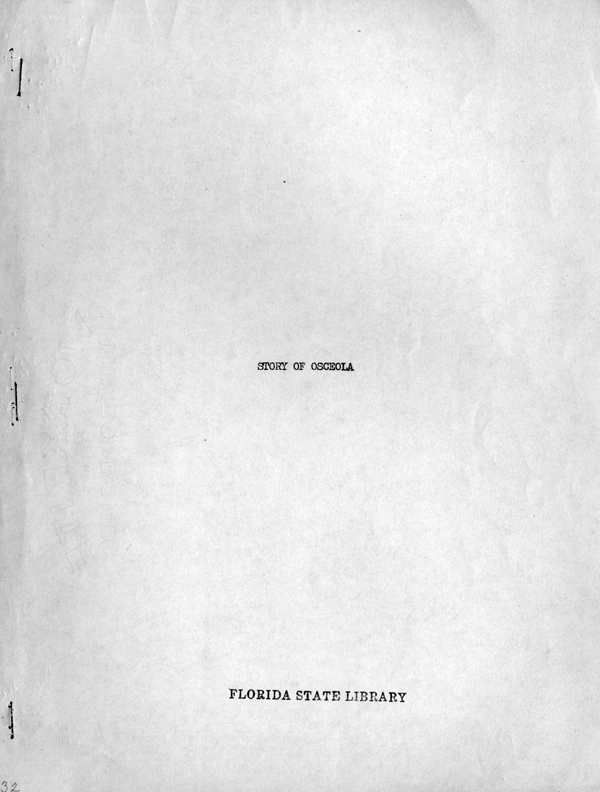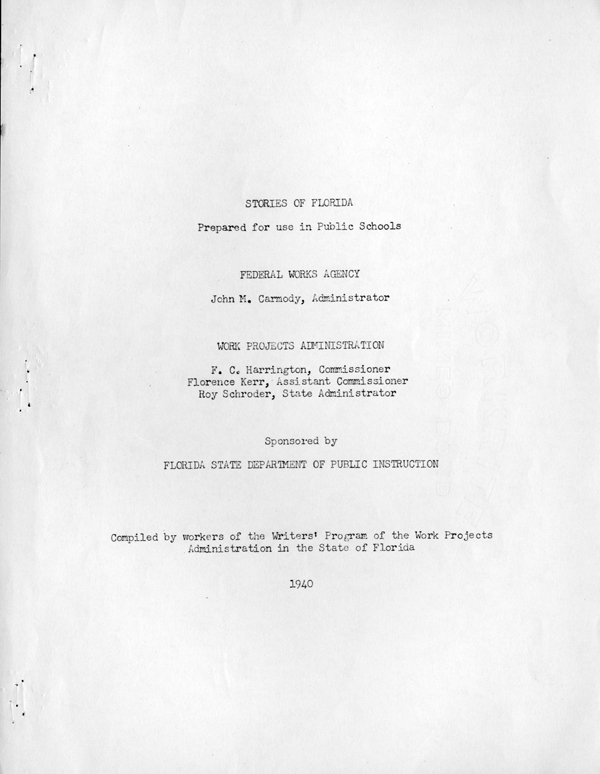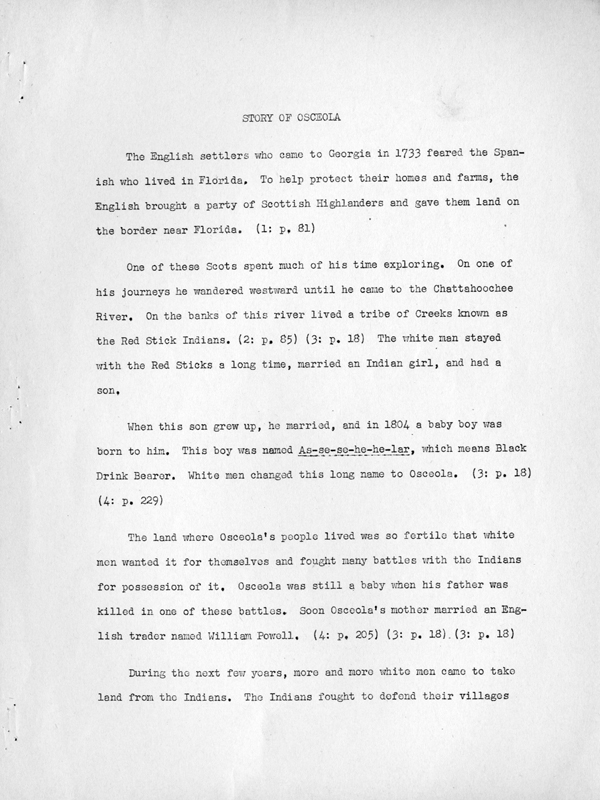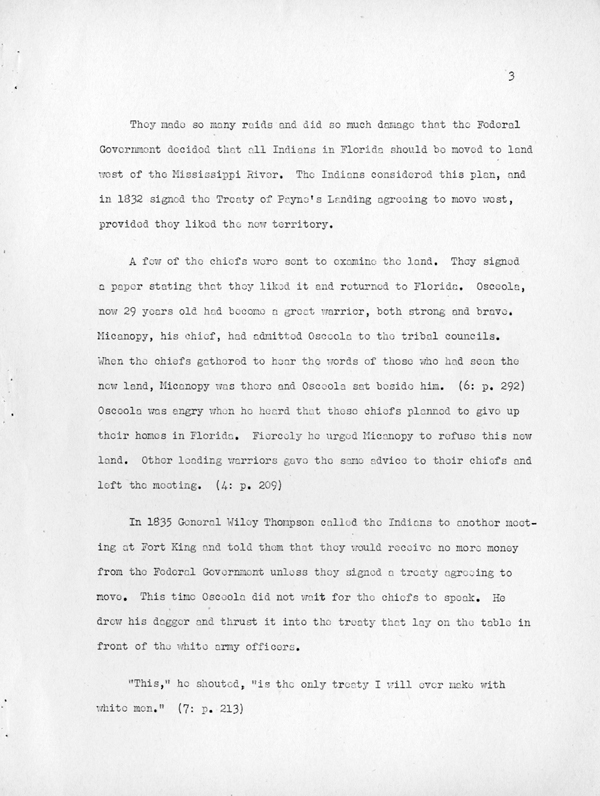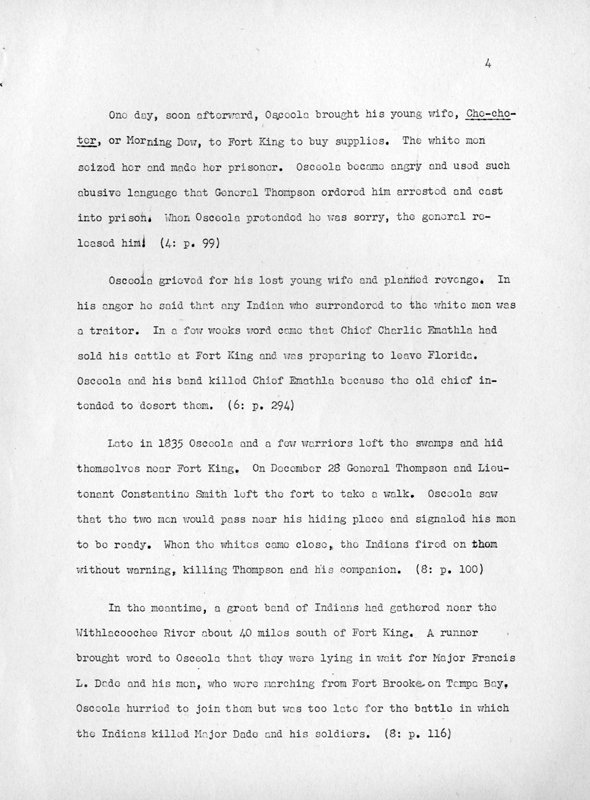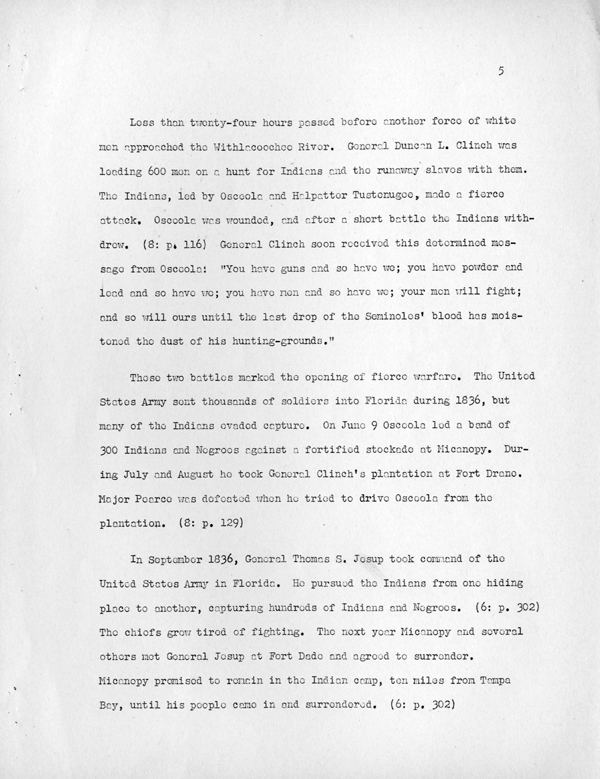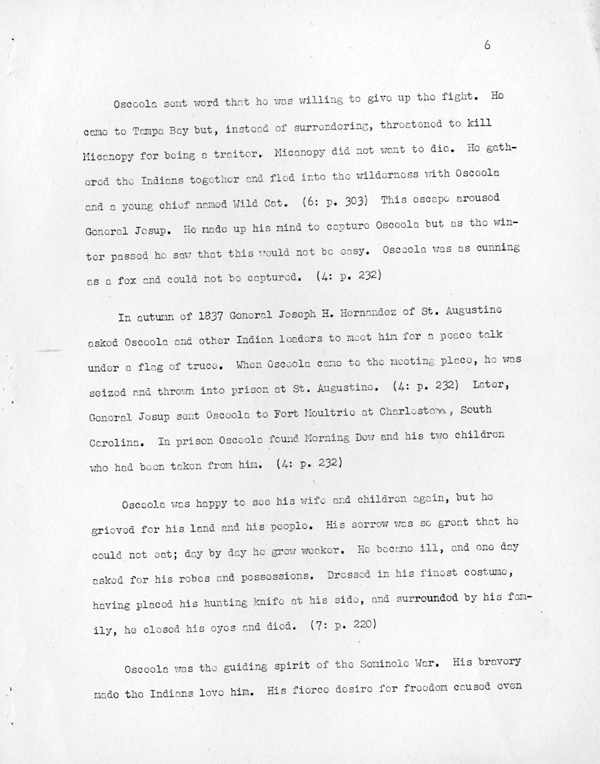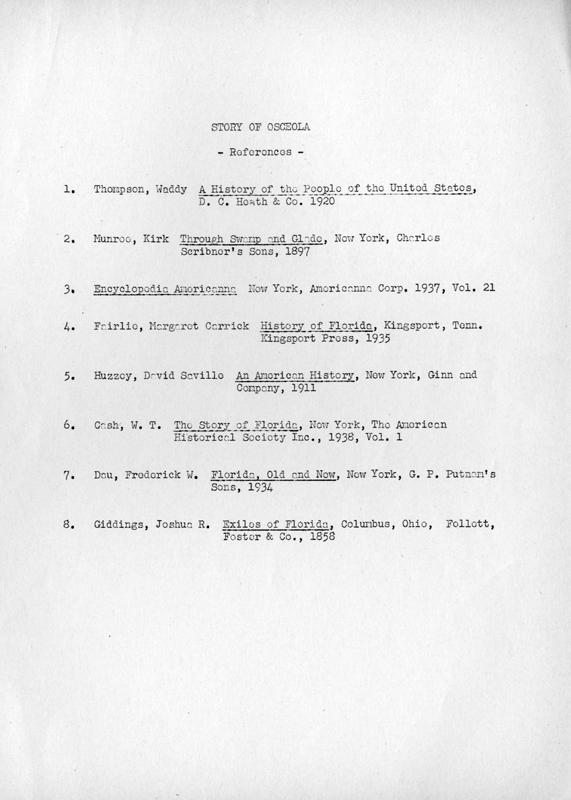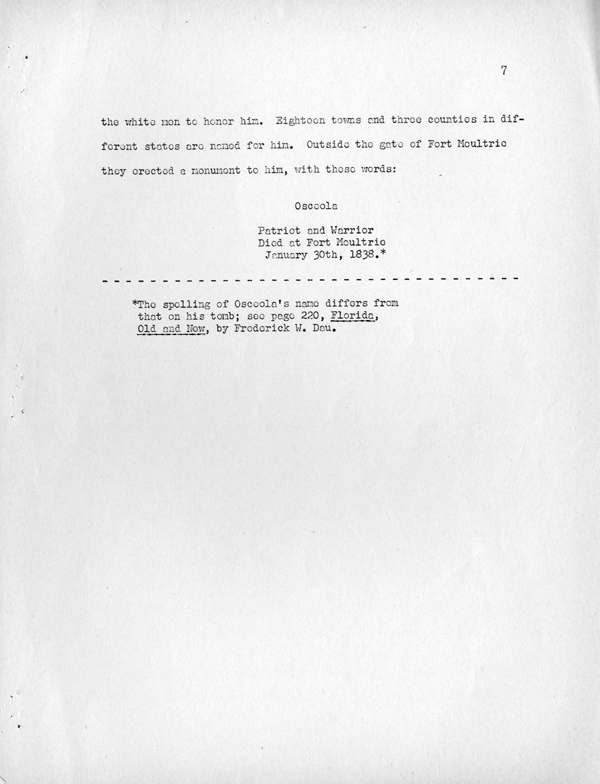Florida Memory is administered by the Florida Department of State, Division of Library and Information Services, Bureau of Archives and Records Management. The digitized records on Florida Memory come from the collections of the State Archives of Florida and the special collections of the State Library of Florida.

State Archives of Florida
- ArchivesFlorida.com
- State Archives Online Catalog
- ArchivesFlorida.com
- ArchivesFlorida.com
State Library of Florida
Related Sites
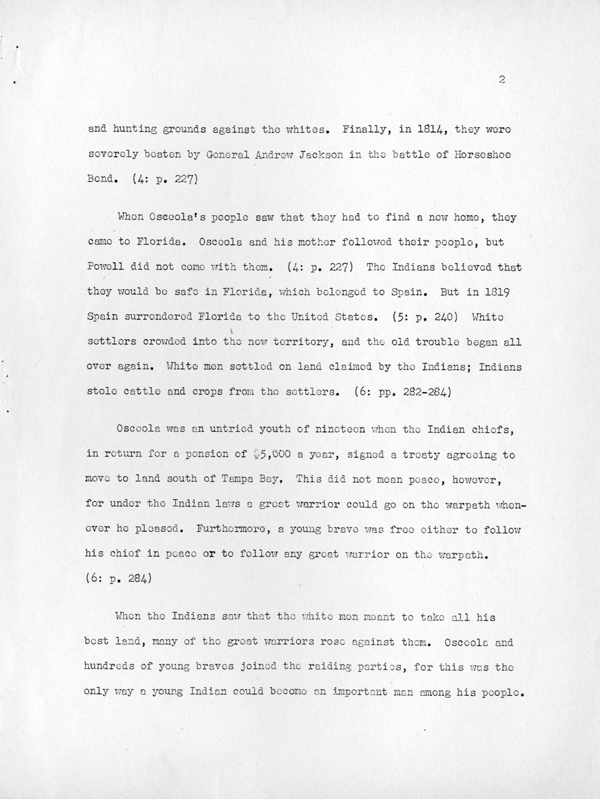
Description of previous item
Description of next item

Title
Published Date
[page 2]
and hunting grounds against the whites. Finally, 1814, they were
severely beaten by General Andrew Jackson in the battle of Horseshoe
Bend. (4: p. 227)
When Osceola's people saw that they had to find a new home,
they came to Florida. Osceola and his mother followed their people, but
Powell did not come with them. (4: p. 227) The Indians believed that
they would be safe in Florida, which belonged to Spain. But in 1819
Spain surrendered Florida to the United States. (5: p. 24) White settlers
crowded into the new territory, and the old trouble began all over again.
White men settled on land claimed by the Indians; Indians stole cattle
and crops from the settlers. (6: pp. 282-284)
Osceola was an untried youth of nineteen when the Indian chiefs,
in return for a pension of $5,000 a year, signed a treaty agreeing to move
to land south of Tampa Bay. This did not mean peace, however, for
under the Indian laws a great warrior could go on the warpath whenever
he pleased. Furthermore, a young brave was free either to follow his
chief in peace or to follow any great warrior on the warpath. (6: p. 284)
When the Indians saw that the white men meant to take all his
best land, many of the great warriors rose against them. Osceola and
hundreds of young braves joined the raiding parties, for this was the only
way a young Indian could become an important man among his people.
Title
Subject
Description
Source
Date
Contributor
Format
Language
Type
Identifier
Published Date
Image URL
Thumbnail
Transcript Path
Image Path
Image Path - Large
Chicago Manual of Style
Story of Osceola. 1940. State Archives of Florida, Florida Memory. <https://www.floridamemory.com/items/show/181543>, accessed 12 February 2026.
MLA
Story of Osceola. 1940. State Archives of Florida, Florida Memory. Accessed 12 Feb. 2026.<https://www.floridamemory.com/items/show/181543>
AP Style Photo Citation

 Listen: The Assorted Selections Program
Listen: The Assorted Selections Program